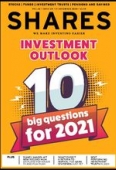Archived article
Please note that tax, investment, pension and ISA rules can change and the information and any views contained in this article may now be inaccurate.
Why shouldn’t I opt out of my workplace pension?

I’m tempted to opt out of my workplace pension scheme. I’m 25 and earn £10 an hour, of which a tiny proportion goes towards my retirement. I spoke to someone who reckons this might generate an income of a few pounds a week when I’m older.
I’m struggling to see the point if I’m honest, so figured I’d be better off spending the money today while I can actually enjoy it!
Can you change my mind…? Stephen
Tom Selby, AJ Bell Senior Analyst says:
I like a challenge Stephen!
All employers are now by law required to auto-enrol eligible employees into a workplace pension scheme.
Minimum contributions are set at 8% of ‘band earnings’, which in 2020/21 means earnings between £6,240 and £50,000. So, for example, someone with a salary of £30,000 auto-enrolled would see 8% of £23,760 (i.e. £30,000 - £6,240) a year go into their pension.
In terms of the split of contributions, 4% will come from you, 3% from employer contributions, and 1% from basic-rate tax relief.
Employers are required to auto-enrol employees aged between 22 and state pension age with a salary of £10,000 or more, although all employees can request to join a scheme. Those who save via auto-enrolment will have their pension automatically invested in a ‘default’ fund, with charges capped at 0.75% a year, although they can choose different investments if they want.
Saving in a pension is a significant commitment, with your money locked up until 55 under current rules, so it is understandable you want assurances you are getting value for money.
The key upfront benefit is your matched employer contribution – effectively a 100% return on the first 3% you pay into your workplace scheme. Your employer will have considered auto-enrolment costs when deciding your overall remuneration – so by opting out you’d effectively be taking a voluntary pay cut.
You should also receive basic-rate tax relief on your personal contribution, which together with the employer contribution means the 4% you pay in is matched upfront.
While your money will be locked away, this isn’t necessarily a bad thing as it will have the opportunity to benefit from tax-free investment growth over time.
In terms of what those contributions might deliver in later life, rules introduced in 2015 mean you can access your money however you want from age 55 (rising to age 57 from 2028). The first 25% is available tax-free with the remaining 75% taxed in the same way as income.
Someone earning £18,000 a year who pays in the minimum contributions for 30 years and enjoys real investment growth of 3% a year after charges could end up with a fund of around £46,000, while after 40 years it could be worth £73,000. And clearly if that person’s wages increased over their career, so too would their projected pension pot.
There are certain circumstances where opting out might make financial sense (e.g. where someone has very high cost debts that take priority). But these are limited and so such a decision must not be taken lightly.
DO YOU HAVE A QUESTION ON RETIREMENT ISSUES?
Send an email to editorial@sharesmagazine.co.uk with the words ‘Retirement question’ in the subject line. We’ll do our best to respond in a future edition of Shares.
Please note, we only provide information and we do not provide financial advice. If you’re unsure please consult a suitably qualified financial adviser. We cannot comment on individual investment portfolios.
Important information:
These articles are provided by Shares magazine which is published by AJ Bell Media, a part of AJ Bell. Shares is not written by AJ Bell.
Shares is provided for your general information and use and is not a personal recommendation to invest. It is not intended to be relied upon by you in making or not making any investment decisions. The investments referred to in these articles will not be suitable for all investors. If in doubt please seek appropriate independent financial advice.
Investors acting on the information in these articles do so at their own risk and AJ Bell Media and its staff do not accept liability for losses suffered by investors as a result of their investment decisions.
Issue contents
First-time Investor
Great Ideas
Great Ideas Update
Investment Trusts
Money Matters
News
- Surge in Airbnb and DoorDash stock renews tech bubble debate
- Marketing of high-risk mini-bonds banned from 2021
- Why aren’t investors cheering AstraZeneca’s bid for Alexion?
- Aberdeen Standard snares Tritax as logistics property boom continues
- Disney shares hit new record high on plans for major TV and film push
- Iron ore trumps gold as the hot commodity of 2020
 magazine
magazine








